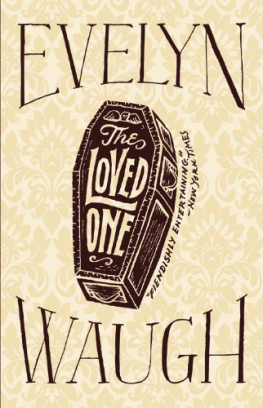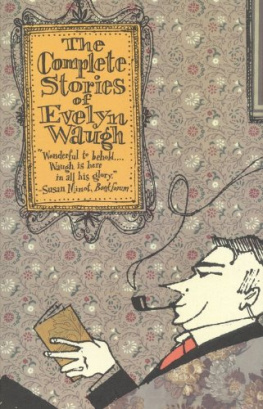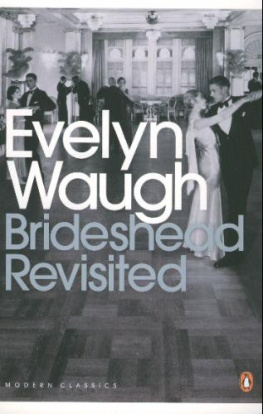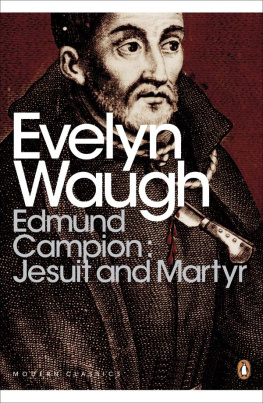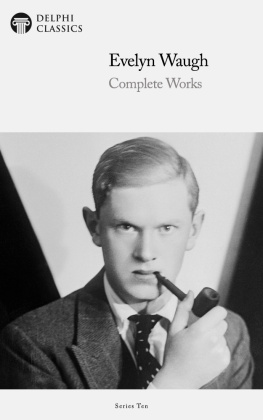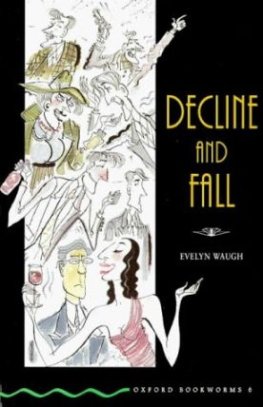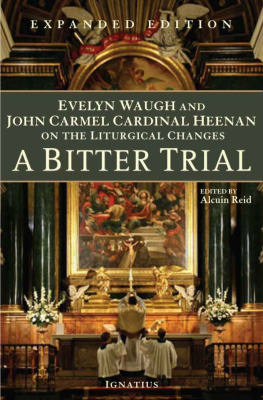Evelyn Waugh - The Loved One
Here you can read online Evelyn Waugh - The Loved One full text of the book (entire story) in english for free. Download pdf and epub, get meaning, cover and reviews about this ebook. year: 1948, publisher: Little, Brown, genre: Detective and thriller. Description of the work, (preface) as well as reviews are available. Best literature library LitArk.com created for fans of good reading and offers a wide selection of genres:
Romance novel
Science fiction
Adventure
Detective
Science
History
Home and family
Prose
Art
Politics
Computer
Non-fiction
Religion
Business
Children
Humor
Choose a favorite category and find really read worthwhile books. Enjoy immersion in the world of imagination, feel the emotions of the characters or learn something new for yourself, make an fascinating discovery.
- Book:The Loved One
- Author:
- Publisher:Little, Brown
- Genre:
- Year:1948
- Rating:3 / 5
- Favourites:Add to favourites
- Your mark:
- 60
- 1
- 2
- 3
- 4
- 5
The Loved One: summary, description and annotation
We offer to read an annotation, description, summary or preface (depends on what the author of the book "The Loved One" wrote himself). If you haven't found the necessary information about the book — write in the comments, we will try to find it.
The Loved One — read online for free the complete book (whole text) full work
Below is the text of the book, divided by pages. System saving the place of the last page read, allows you to conveniently read the book "The Loved One" online for free, without having to search again every time where you left off. Put a bookmark, and you can go to the page where you finished reading at any time.
Font size:
Interval:
Bookmark:


In accordance with the U.S. Copyright Act of 1976, the scanning, uploading, and electronic sharing of any part of this book without the permission of the publisher constitute unlawful piracy and theft of the authors intellectual property. If you would like to use material from the book (other than for review purposes), prior written permission must be obtained by contacting the publisher at permissions@hbgusa.com. Thank you for your support of the authors rights.
[TK]
B efore the Second World War I had briefly visited New York and Washington. Shortly after it I was invited with my wife to Hollywood where a producer expressed the wish to film Brideshead Revisited. I did not want a film to be made but during the privations of the Attlee-Cripps regime I was glad to escape from England. Smog had not then developed but the sprawling, nondescript ugliness of Los Angeles, combined with the awful inefficiency of studio and hotel, would have spoiled our pleasure in the expedition had we not early been introduced by an Australian friend to the unsurpassed glories of the cemetery which I have here named Whispering Glades. A large car came daily to take me to the studio; daily I directed it to the graveyard where I spent long periods of delight penetrating the arcana of that lustrous trade.
I experienced there what I believe to be the authentic appetite of a writer on the track of a story. I have attributed that rare elation to the hero of this book, making him in the process a poet instead of a novelist.
It was some time before the book took shape. I should like to thank Lady Milbanke (as she then was) for setting my first steps on this pleasant path; Mr. Cyril Connolly for correcting my English and Mrs. Reginald Allen for correcting my American.
Since the appearance of this book many kindly people have taken the trouble to send me additional, bizarre information about the world of morticians. Let me here assure any future readers that the subject does not obsess me; that it was the consolation of a brief exile and that I do not need further documents.
E. W.
Combe Florey 1964

A ll day the heat had been barely supportable but at evening a breeze arose in the west, blowing from the heart of the setting sun and from the ocean, which lay unseen, unheard behind the scrubby foothills. It shook the rusty fingers of palm-leaf and swelled the dry sounds of summer, the frog-voices, the grating cicadas, and the ever present pulse of music from the neighboring native huts.
In that kindly light the stained and blistered paint of the bungalow and the plot of weeds between the verandah and the dry water-hole lost their extreme shabbiness, and the two Englishmen, each in his rocking-chair, each with his whisky and soda and his outdated magazine, the counterparts of numberless fellow-countrymen exiled in the barbarous regions of the world, shared in the brief illusory rehabilitation.
Ambrose Abercrombie will be here shortly, said the elder. I dont know why. He left a message he would come. Find another glass, Dennis, if you can. Then he added more petulantly: Kierkegaard, Kafka, Connolly, Compton Burnett, Sartre, Scottie Wilson. Who are they? What do they want?
Ive heard of some of them. They were being talked about in London at the time I left.
They talked of Scottie Wilson?
No. I dont think so. Not of him.
Thats Scottie Wilson. Those drawings there. Do they make any sense to you?
No.
No.
Sir Francis Hinsleys momentary animation subsided. He let fall his copy of Horizon and gazed towards the patch of deepening shadow which had once been a pool. His was a sensitive, intelligent face, blurred somewhat by soft living and long boredom. It was Hopkins once, he said; Joyce and Freud and Gertrude Stein. I couldnt make any sense of them either. I never was much good at anything new. Arnold Bennetts debt to Zola; Fleckers debt to Henley. That was the nearest I went to the moderns. My best subjects were The English Parson in English Prose or Cavalry Actions with the Poetsthat kind of thing. People seemed to like them once. Then they lost interest. I did too. I was always the most defatigable of hacks. I needed a change. Ive never regretted coming away. The climate suits me. They are a very decent generous lot of people out here and they dont expect you to listen. Always remember that, dear boy. Its the secret of social ease in this country. They talk entirely for their own pleasure. Nothing they say is designed to be heard.
Here comes Ambrose Abercrombie, said the young man.
Evening, Frank. Evening, Barlow, said Sir Ambrose Abercrombie coming up the steps. Its been another scorcher, eh? Mind if I take a pew? When, he added aside to the young man who helped him to whisky. Right up with soda, please.
Sir Ambrose wore dark gray flannels, an Eton Rambler tie, an I Zingari ribbon on his boater hat. This was his invariable dress on sunny days; whenever the weather allowed it he wore a deer-stalker cap and an Inverness cape. He was still on what Lady Abercrombie fatuously called the right side of sixty but having for many years painfully feigned youth, he now aspired to the honors of age. It was his latest quite vain wish that people should say of him: Grand old boy.
Been meaning to look you up for a long time. Trouble about a place like this ones so darn busy, one gets in a groove and loses touch. Doesnt do to lose touch. We limeys have to stick together. You shouldnt hide yourself away, Frank, you old hermit.
I remember a time when you lived not so far away.
Did I? Pon my soul I believe youre right. That takes one back a bit. It was before we went to Beverly Hills. Now, as of course you know, were in Bel Air. But to tell the truth Im getting a bit restless there. Ive got a bit of land out on Pacific Palisades. Just waiting for building costs to drop. Where was it I used to live? Just across the street, wasnt it?
Just across the street, twenty years or more ago, when this neglected district was the center of fashion, Sir Francis, in prime middle-age, was then the only knight in Hollywood, the doyen of English society, chief scriptwriter in Megalopolitan Pictures and President of the Cricket Club. Then the young, or youngish Ambrose Abercrombie used to bounce about the lots in his famous series of fatiguing roles, acrobatic, heroic, historic, and come almost nightly to Sir Francis for refreshment. English titles abounded now in Hollywood, several of them authentic, and Sir Ambrose had been known to speak slightingly of Sir Francis as a Lloyd George creation. The seven-league boots of failure had carried the old and the ageing man far apart. Sir Francis had descended to the Publicity Department and now held rank, one of a dozen, as Vice-President of the Cricket Club. His swimming-pool which had once flashed like an aquarium with the limbs of long-departed beauties was empty now and cracked and over-grown with weed.
Yet there was a chivalric bond between the two.
How are things at Megalo? asked Sir Ambrose.
Greatly disturbed. We are having trouble with Juanita del Pablo.
Luscious, languid and lustful?
Those are not the correct epithets. She isor rather wasSurly, lustrous and sadistic. I should know because I composed the phrase myself. It was a smash-hit, as they say, and set a new note in personal publicity.
Next pageFont size:
Interval:
Bookmark:
Similar books «The Loved One»
Look at similar books to The Loved One. We have selected literature similar in name and meaning in the hope of providing readers with more options to find new, interesting, not yet read works.
Discussion, reviews of the book The Loved One and just readers' own opinions. Leave your comments, write what you think about the work, its meaning or the main characters. Specify what exactly you liked and what you didn't like, and why you think so.

